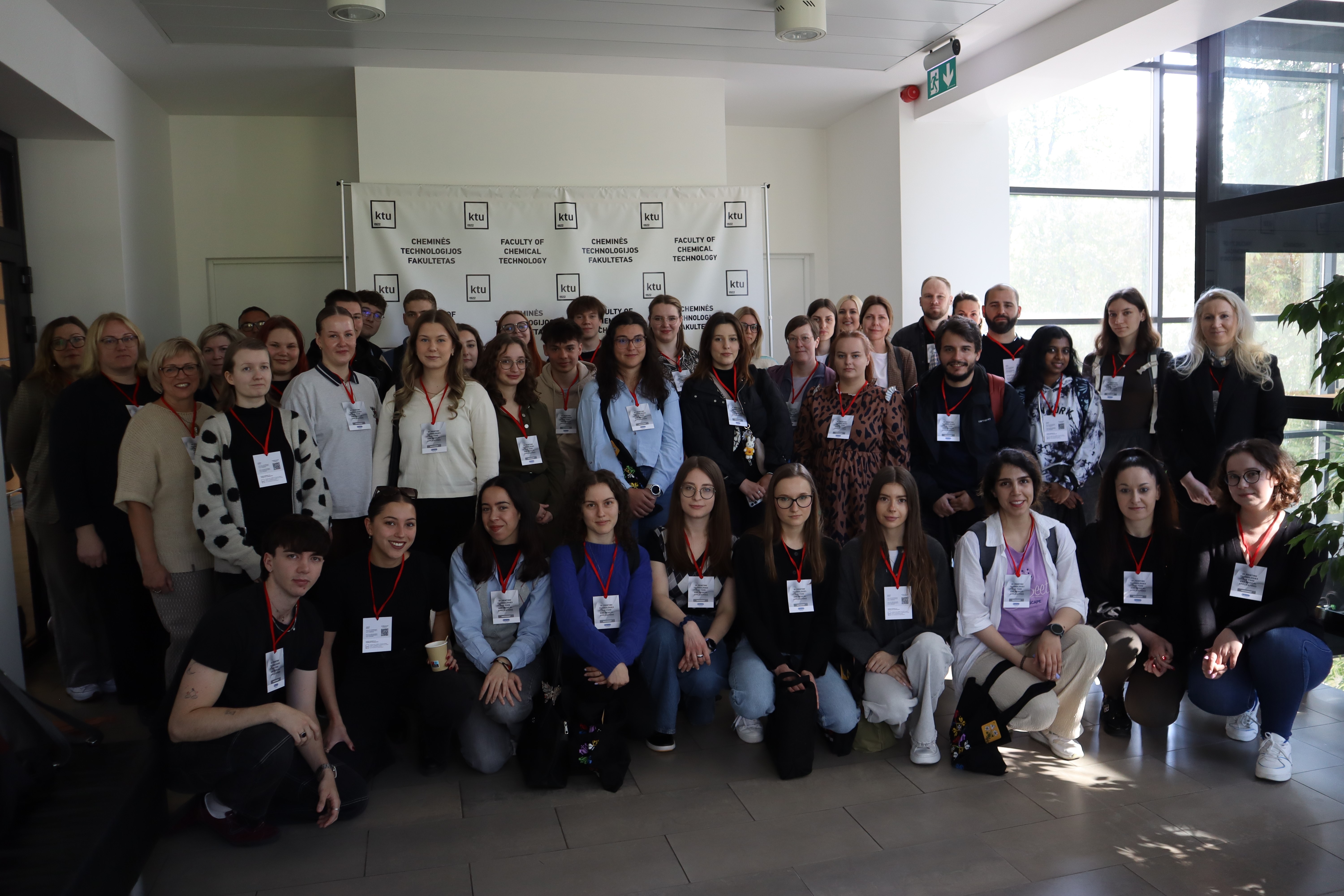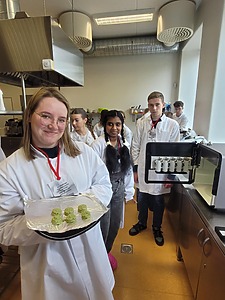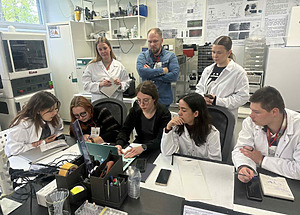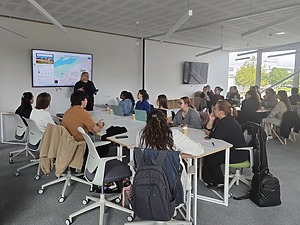The Faculty of Chemical Technology (Kaunas University of Technology) has successfully implemented an international “Erasmus+” project under the Blended Intensive Programme titled “3D Printing Technologies for Food and Medical Applications”.
The project involved students and lecturers from eleven European universities: Metropolia University of Applied Sciences (Finland), University of Latvia (Latvia), Artois University (France), University of Trento (Italy), Latvia University of Life Sciences and Technologies (Latvia), Riga Technical University (Latvia), Lodz University of Technology (Poland), University of Agriculture in Krakow (Poland), University of Aveiro (Portugal), University of Almería (Spain), and Kaunas University of Technology (Lithuania), which coordinated and hosted the event.
One of the project’s main goals was to develop interdisciplinary competences to address current challenges in the food and medical sectors and to explore innovative solutions using 3D printing technologies. The project also aimed to enhance critical thinking, creativity, and teamwork skills in an international, multicultural environment.
To achieve this, the project included both virtual sessions and physical sessions held at Kaunas University of Technology’s Interdisciplinary Prototyping Laboratory Center and the laboratories of the Faculty of Chemical Technology.
The project began with online lectures, during which participants gained knowledge about advanced 3D printing technologies, their potential applications, and the specific challenges involved in developing innovative food products as well as both invasive and non-invasive biomedical materials.
A key highlight of the project was the practical insights shared by industry professionals, which provided students with first-hand exposure to real-world challenges and technological solutions in biomedical material development. During the project, Vidmantas Šakalys, CEO of UAB Vital 3D Technologies, shared his experience. Participants were introduced to the company’s “FemtoBrush”technology, which enables ultra-precise and rapid printing of complex structures such as vascular networks and functional tissue models.
“The company director’s shared experience was inspiring and encouraged us to look more broadly at the possibilities of 3D printing,” said Aurelija Gardžiulytė, a student in the “Biomedical Materials Industries” study programme and event participant.






